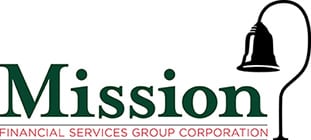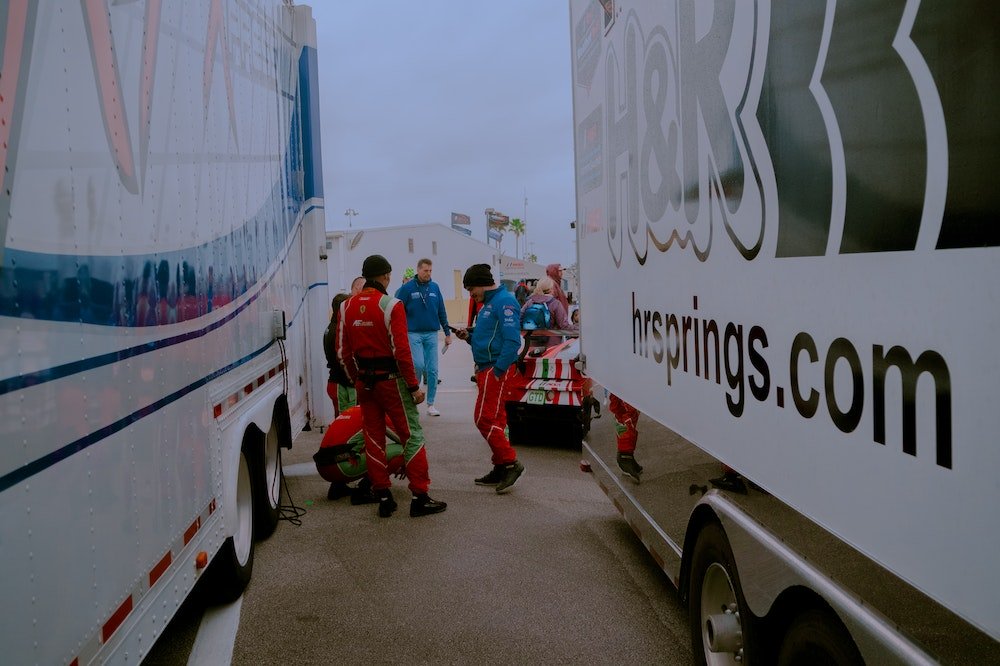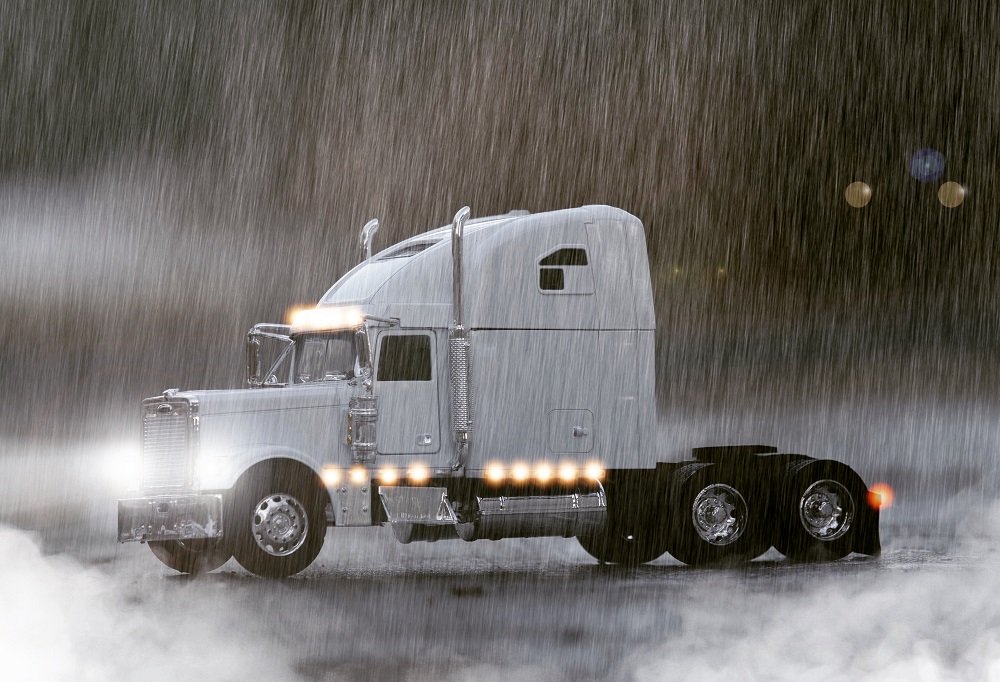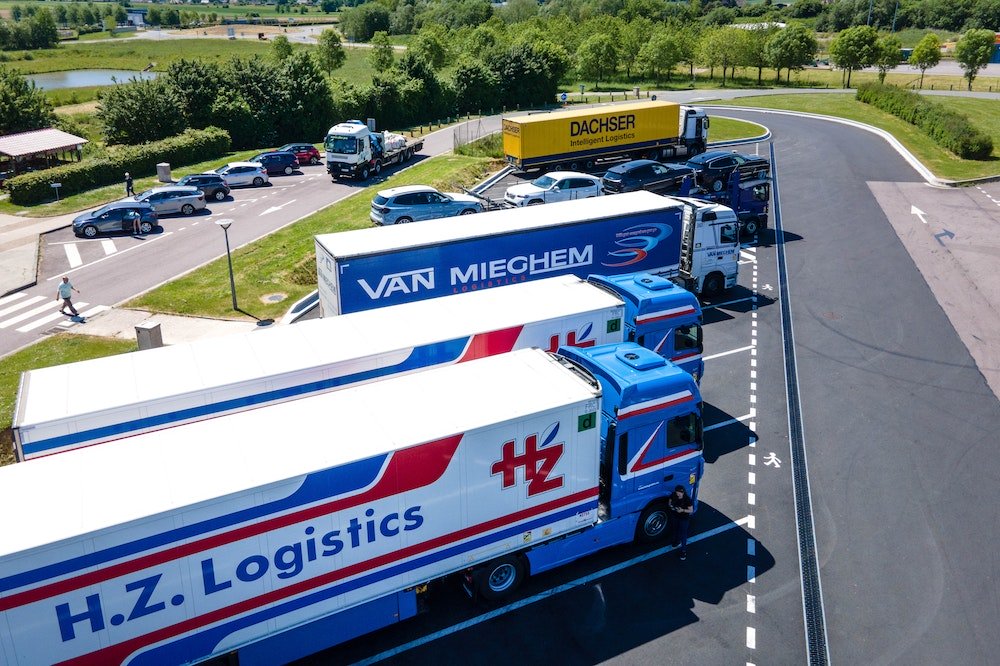Hey there, small business owners in the trucking industry! Are you running a fleet of commercial trucks or considering venturing into this dynamic field? In that case, one crucial aspect you need to familiarize yourself with is commercial truck insurance.
It’s no secret that the road can be unpredictable, and protecting your business from potential risks and liabilities is essential.
Let’s delve into the world of trucking insurance, unravel its complexities, and provide you with essential insights to make informed decisions.
So, fasten your seatbelts and get ready to navigate the insurance landscape with confidence and peace of mind!
Commercial Truck Insurance For Small Business: All You Need To Know
Here’s everything you need to know when you purchase commercial truck insurance.
Types Of Commercial Truck Insurance
Understanding the types of commercial truck coverage is crucial for small businesses in the trucking industry. Each type of coverage addresses specific risks and liabilities, allowing you to tailor your personal auto insurance policies to the unique needs of your business.
By selecting the appropriate insurance coverage, you can protect your assets, comply with legal requirements, and confidently operate your small trucking business.
Here are the most common types of small business commercial vehicle insurance out there.
Primary Liability Insurance
Primary liability insurance is a legal requirement for all commercial trucks operating on public roads. It covers bodily injury and property damage caused to others in an accident where the insured truck is at fault. This insurance ensures victims receive compensation for their injuries or property damage, protecting your business from lawsuits.
Physical Damage Coverage
Physical damage coverage protects the insured commercial truck itself. It includes collision coverage, which covers damages from collisions with other vehicles or objects.
It also covers damages from non-collision incidents such as theft, vandalism, fire, or natural disasters. Physical damage coverage is critical if your truck has significant value or if you have financing or leasing obligations.
Cargo Insurance
Cargo insurance protects the goods or freight being transported by your commercial truck. It covers damage or loss of cargo due to accidents, theft, or other covered perils.
Cargo insurance is crucial for trucking businesses that transport valuable or sensitive cargo, providing peace of mind and financial protection in case of unforeseen incidents.
Non-Trucking Liability Insurance
Non-trucking liability insurance, or bobtail insurance, covers liability when the truck is operated for non-business purposes, such as when the semi-truck driver is off-duty or using the truck for personal use. This insurance fills the coverage gap that may exist when the primary liability insurance does not apply outside of business-related activities.
Motor Truck General Liability Insurance
Motor truck general liability insurance offers coverage beyond primary liability insurance. It covers bodily injury or property damage caused by non-trucking-related activities, such as when the driver is at a loading dock or engaged in other non-driving operations. This insurance protects your business from potential liability claims during trucking operations.
Trailer Interchange Insurance
Trailer interchange insurance covers damage or loss to non-owned trailers that a trucking company uses under a trailer interchange agreement.
This insurance is essential for rental reimbursement and when trucking companies interchange trailers with other companies or use trailers owned by others, ensuring that damages to the trailers are covered under your commercial truck insurance policy.
Umbrella Insurance
Umbrella insurance provides additional liability coverage that extends beyond the limits of your primary liability insurance. It offers extra protection against high-cost claims and lawsuits.
Umbrella insurance can benefit trucking businesses that want to increase their liability coverage limits and protect their assets in a catastrophic event.
What To Look For In Commercial Truck Insurance
When choosing the best commercial truck insurance for commercial vehicles, it’s essential to consider several factors to ensure you have the right coverage that meets your specific needs. Here are some key aspects to look for when evaluating commercial trucking insurance options:
Customizable Policies
Every trucking business is unique, and your insurance needs may vary depending on the type of cargo you transport, the distance you travel, and other specific factors. Look for insurance providers that offer customizable policies, allowing you to tailor the coverage to your business requirements. This ensures you only pay for the coverage you need without unnecessary extras.
Adequate Coverage Limits
Assess the coverage limits offered by the insurance policy. It’s crucial to have adequate coverage limits that align with your business’s potential risks and liabilities. Consider factors such as the value of your trucks, the nature of the cargo you transport, and the potential costs of accidents or lawsuits. Adequate coverage limits provide the financial protection you need in case of unforeseen events.
Deductibles And Premiums
Evaluate the deductibles and premiums associated with the insurance policy. Deductibles are the amount you’re responsible for paying out of pocket before the insurance coverage kicks in. At the same time, premiums are the recurring payments you make for the policy. Consider your budget and financial capabilities to choose deductibles and premiums that are reasonable and affordable for your small business.
Claims Process And Customer Support
Look for an insurance provider with a straightforward and efficient claims process. In the event of an accident or loss, a responsive and supportive claims department can make a significant difference in quickly resolving issues and getting your business back on track. Read reviews and seek recommendations to gauge the quality of customer support the insurance company provides.
Insurance Company Reputation
Research the reputation and financial stability of the commercial truck insurance company you are considering. Look for insurance providers with a solid track record, strong financial ratings, and a history of providing reliable coverage and excellent customer service. Reputable commercial truck insurance providers will give you confidence that they’ll be there when you need them most.
Additional Services And Resources
Consider any additional services or resources offered by the insurance provider. Some companies provide risk management tools, safety training programs, or access to industry-specific expertise. These value-added services can help you enhance the safety of your operations, mitigate risks, and improve overall business performance.
Insuring Vs. Financing Your Semi-Truck
When it comes to buying a semi-truck for businesses, you’ll likely face the decision of whether to insure or finance your vehicle.
Both options have their merits, and understanding the differences can help you make an informed decision. Let’s explore the considerations when it comes to insuring versus financing your semi-truck:
Insuring Your Semi-Truck
Insuring your semi-truck is critical in protecting your investment and managing potential risks. Commercial truck insurance companies offer coverage for liability, physical damage, motor truck cargo, and more.
Insuring your semi-truck protects your business from the financial implications of accidents, theft, damage, or other unforeseen events. Commercial auto insurance acts as a safety net, helping you recover financially and continue operations in the face of adversity.
It provides peace of mind, knowing that you’re adequately protected and can focus on your business without worrying about the potential financial burden of incidents on the road.
Financing Your semi-truck
Financing your semi-truck involves obtaining a loan or lease to acquire the vehicle. This option allows you to spread the cost of the truck over a predetermined period, making it more affordable in the short term.
Financing can be advantageous, especially if you don’t have the total funds upfront or prefer to allocate your capital to other aspects of your business.
By financing, you can secure a reliable and efficient semi-truck without depleting your cash reserves, enabling you to preserve working capital for operational needs or other investments.
However, it’s essential to consider the terms and interest rates associated with the financing option to ensure it aligns with your budget and financial goals.
Making The Right Choice
The decision between insuring and financing your semi-truck ultimately depends on your specific circumstances and priorities. Assessing your business’s financial position, risk tolerance, and long-term goals is crucial.
If you have the financial capacity, insuring your semi-truck is a non-negotiable aspect of responsible business ownership. Insurance protects your investment, business reputation, and ability to bounce back from potential setbacks.
On the other hand, if you require additional funds to acquire a semi-truck and financing aligns with your financial strategy, securing a loan or lease can be a viable option. You’ll need to consider commercial truck insurance costs.
Most businesses choose a combination of both insurance and financing.
By insuring your semi-truck and financing its purchase, you can simultaneously enjoy the benefits of protection and affordability. This approach allows you to balance the need for insurance coverage with the financial flexibility provided by financing arrangements.
Ultimately, whether you choose to insure, finance, or pursue a combination of both for your semi-truck, consulting with professionals in the insurance and financing sectors is crucial.
Final Thoughts
Remember, insurance is not just a requirement like your commercial driver’s license, it’s an investment in the longevity and stability of your business.
Take the time to research and compare different insurance options, consult with professionals in the industry if needed, and choose a policy that aligns with your goals and risk tolerance.
With the right commercial truck coverage, you can focus on growing your business while knowing you’re protected against potential challenges and setbacks.
If you’re looking to insure your semi-truck, reach out to Mission Financial Services today.








